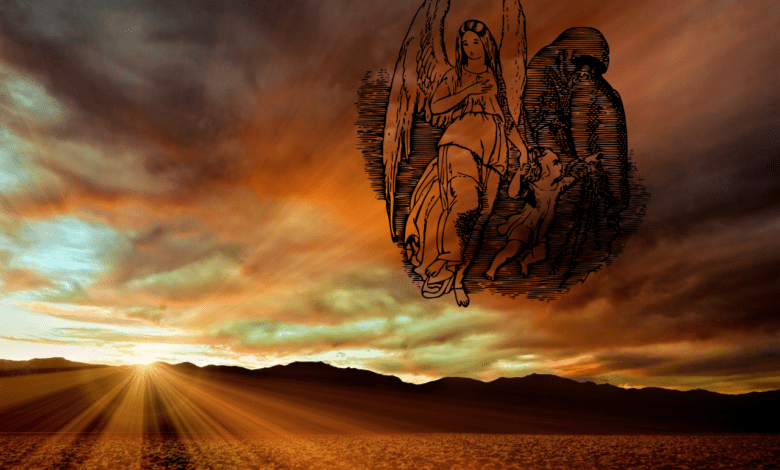The Eternal Question: Do You Believe in Life After Life?

Do you believe in life after life ?The idea of life after death, or an afterlife, has fascinated people for centuries. It’s a question that makes us think deeply about consciousness, the soul, and what might exist beyond our lives. In our complex world, the belief in an afterlife brings comfort, hope, and a feeling of connection that goes beyond death’s end.
In this exploration, we delve into the timeless question of what happens after death. We examine various perspectives, beliefs, and experiences that shape our understanding of this topic. From ancient philosophies to modern scientific theories, we explore the intricate ideas that have sought to solve this profound mystery.
Historical and cultural perspectives on life after life
The belief in an afterlife is deeply ingrained in human civilization, spanning cultures, religions, and epochs. For instance, ancient Egyptian civilizations embraced the concept, constructing magnificent pyramids and tombs for the deceased’s journey into the realm of the gods. Similarly, ancient Greeks and Romans recounted detailed stories of the underworld, where souls were guided by legendary figures like Charon, the ferryman of the dead.
In contrast, Eastern philosophies embraced the idea of rebirth, where the soul undergoes a cyclical journey through multiple lifetimes shaped by the karmic imprint of previous existences. This belief system offered a profound perspective on the interconnectedness of all life and the ongoing journey of the soul.
Religious beliefs about life after life
In major religions worldwide, belief in an afterlife provides comfort and guidance to billions of followers. Christianity firmly establishes the concepts of heaven and hell, promising eternal bliss in the celestial realm for the righteous and eternal damnation for the wicked. In Islam, paradise (Jannah) and hell (Jahannam) await, where souls are judged based on their earthly deeds and faith.
On the other hand, Hinduism and Buddhism embrace the belief in rebirth and the cycle of birth, death, and rebirth known as samsara. The ultimate goal in these religions is to attain moksha or nirvana, a state of liberation from the cycle of rebirth and a merging with the divine essence.
Do you believe in life after life? These diverse beliefs shape perspectives on existence beyond earthly life and reflect humanity’s spiritual quest for understanding and enlightenment.
Near-death experiences and evidence of an afterlife
Near-death experiences (NDEs) have captivated the public and sparked debates about the afterlife. Individuals who have clinically died and been revived often describe profound experiences, such as feeling out-of-body, meeting deceased loved ones, and witnessing a transcendent realm beyond the physical world.
Nevertheless, skeptics dismiss these experiences as illusions or the brain’s final firing of neurons. On the other hand, proponents argue that the consistency and vividness of NDEs suggest a deeper reality. Additionally, some people report gaining profound insights, undergoing life reviews, and encountering beings of light or divine presences during their NDEs. Consequently, these experiences support the idea of an afterlife.
Do you believe in life after life? This question remains at the heart of these fascinating accounts.
Scientific theories and research on life after life
In science, researchers have explored the question of life after death through various approaches, including quantum physics, neuroscience, and consciousness studies. Theories such as quantum consciousness, which suggest that consciousness may extend beyond the physical realm, have sparked intriguing discussions.
Furthermore, scientists have studied terminal lucidity, where individuals with advanced dementia or cognitive impairments unexpectedly experience clarity and awareness shortly before death. This phenomenon has led some researchers to speculate about the potential existence of a non-local consciousness that surpasses the limitations of the physical brain.
Do you believe in life after life? These inquiries challenge our understanding of consciousness and its possible continuation beyond physical death.
Skepticism and skepticism towards life after life
While the belief in an afterlife offers comfort and hope to many, skepticism and rational inquiry have also played a crucial role in shaping our understanding of this eternal question. Specifically, critics argue that there is a lack of empirical evidence to support the existence of an afterlife, and they attribute near-death experiences and other phenomena to natural biological processes or psychological factors.
Additionally, the scientific method, which relies on observable, testable, and repeatable evidence, has yet to conclusively prove or disprove the existence of an afterlife. Furthermore, skeptics argue that believing in an afterlife is based on faith rather than scientific fact because extraordinary claims require extraordinary evidence, which has not been presented.
In light of these perspectives, do you believe in life after life? This question continues to challenge both our scientific understanding and our personal beliefs.
Personal experiences and anecdotes
Beyond religious and scientific perspectives, personal experiences and anecdotes have played a significant role in shaping our understanding of life after life. People across generations, cultures, and communities have shared stories about encounters with deceased loved ones, premonitions, and unexplained phenomena.
Some individuals claim to have experienced vivid dreams or visions of departed family members or friends, conveying messages or providing comfort. In addition, others report sensing the presence of a loved one or experiencing mysterious occurrences that they attribute to the influence of a spiritual realm.
Do you believe in life after life ? While these accounts are subjective and challenging to verify through scientific means, they hold profound significance for those who have experienced them, shaping their beliefs and offering solace in times of grief and loss.
Exploring different perspectives and beliefs about life after life
As we navigate this eternal question, it becomes evident that there is no single, definitive answer.
Instead, we encounter a variety of perspectives, beliefs, and experiences that mirror the richness and diversity of human thought and culture.
Some find solace in the belief in an afterlife, embracing the idea of a ongoing of consciousness or a reunion with loved ones in a celestial realm. Others find comfort in the idea of rebirth, seeing death as a transition to a new phase of existence influenced by their actions in life.
For skeptics and people who focus on material things, the idea of life after death might seem like a comforting fantasy. They find meaning and purpose in the here and now, valuing the briefness of life and how they can make a difference in the world.
Coping with the fear of death and the belief in life after life
Everyone experiences the fear of death, and pondering ‘do you believe in life after life?’ can be a powerful coping mechanism for many. The prospect of ongoing consciousness or reuniting with loved ones can alleviate the anxiety and dread associated with the finality of death.
For those facing terminal illness or grieving a loss, belief in an afterlife can offer hope and comfort, promising a transcendent existence beyond the physical world.
Conclusion:
In conclusion, the question ‘Do you believe in life after life?’ is personal and complex. Some people find comfort in believing in an afterlife, while others find meaning in the idea that death is final and focus on the present moment.
We may never have conclusive evidence about life after death. This question touches on faith, personal experiences, and mysteries beyond our current understanding of the universe.
Exploring this question helps us understand different beliefs and cultures that shape our lives. As we face life’s challenges and the reality of death, we find comfort and meaning in our beliefs and experiences. It’s important to respect the mystery of what we don’t know.







